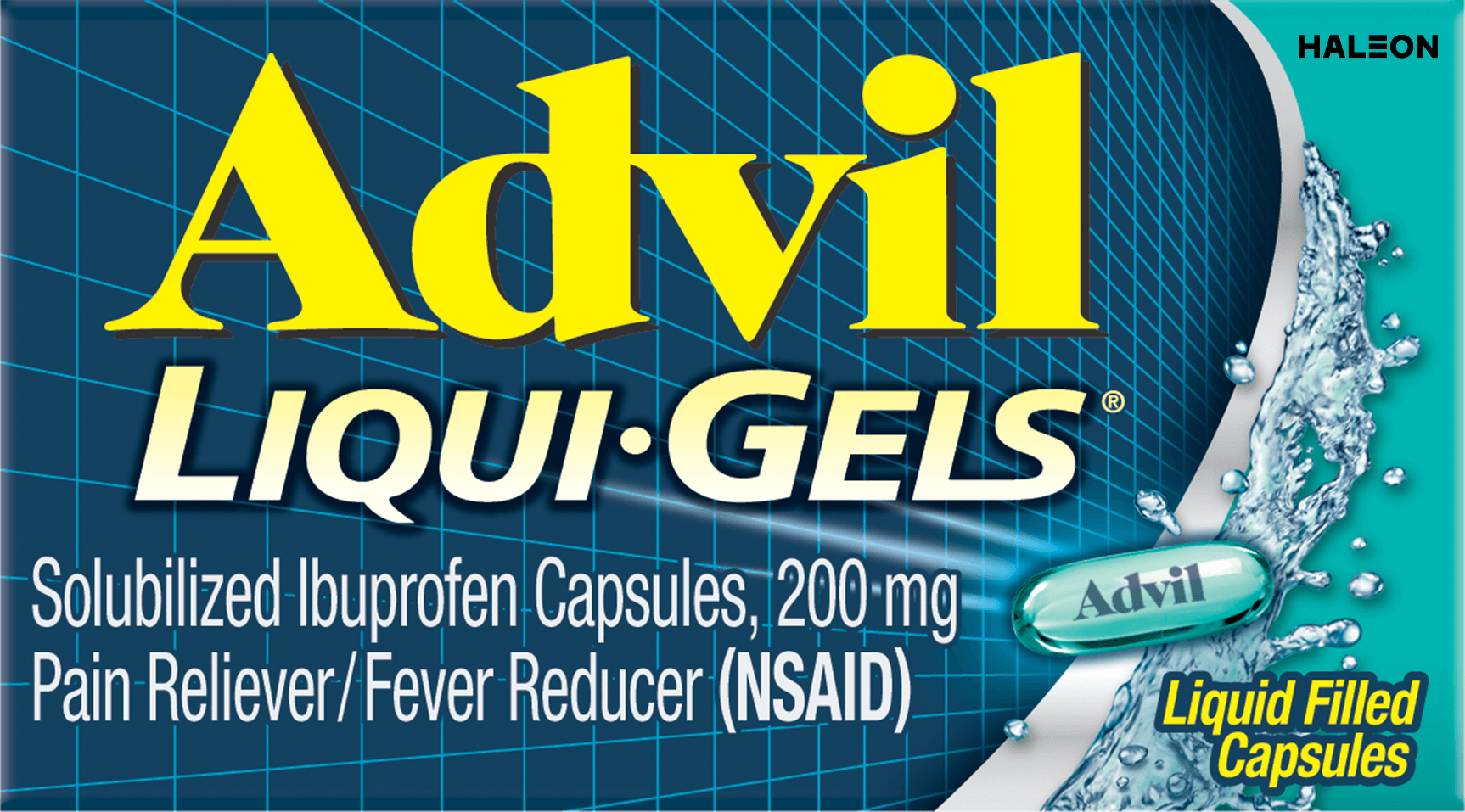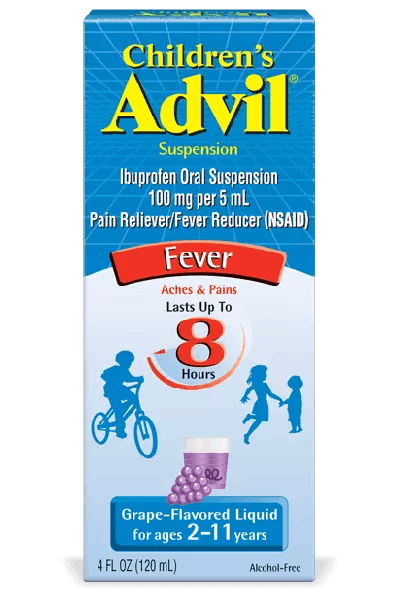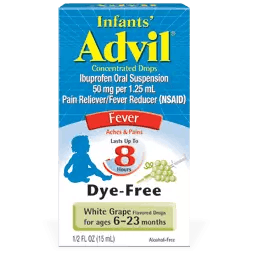Advil Pain Products
Whether your symptoms include headache, muscle ache, backache, minor arthritis and other joint pain, menstrual pain, or aches and pains of the common cold, we’ve got you covered. Browse all of our pain relief products below.
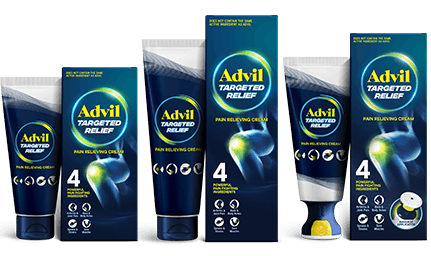
Advil Targeted Relief
The only topical pain reliever with 4 powerful pain fighting ingredients* that starts working on contact for up to 8 hours.
*among leading pain relief brands.
ANCHOR HERE

Advil Dual Action
Fights pain 2 ways: Acetaminophen blocks pain signals. Advil targets pain at the source.
ANCHOR HERE
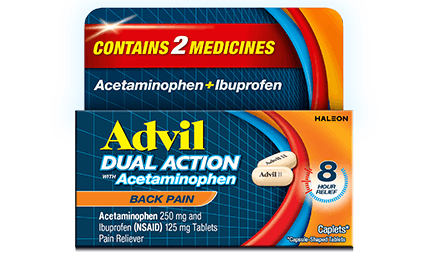
Advil Dual Action Back Pain
Fights back pain 2 ways: Acetaminophen blocks pain signals. Advil targets pain caused by inflammation.
ANCHOR HERE
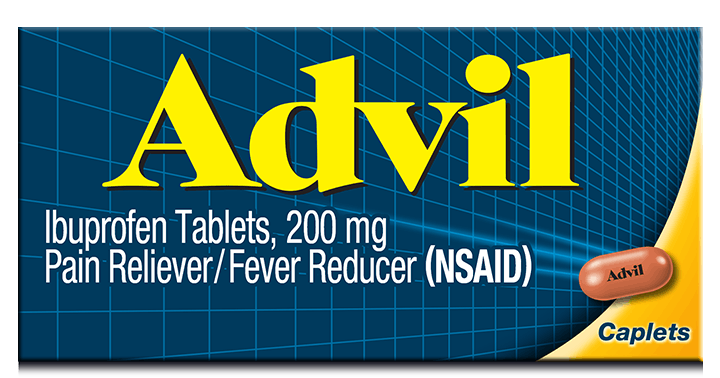
Advil Caplets
Advil has provided safe, effective pain relief for over 35+ years.
ANCHOR HERE

Advil Gel Caplets
Advil has provided safe, effective pain relief for over 35+ years.
ANCHOR HERE
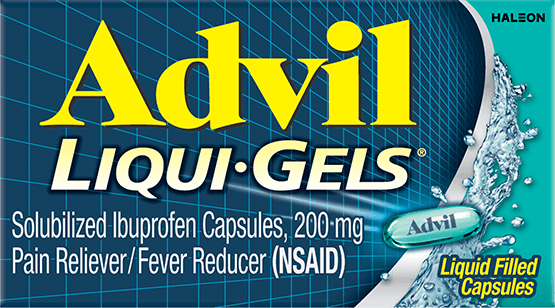
Advil Liqui-Gels
Get fast liquid relief, right where you need it most, at the source.
ANCHOR HERE
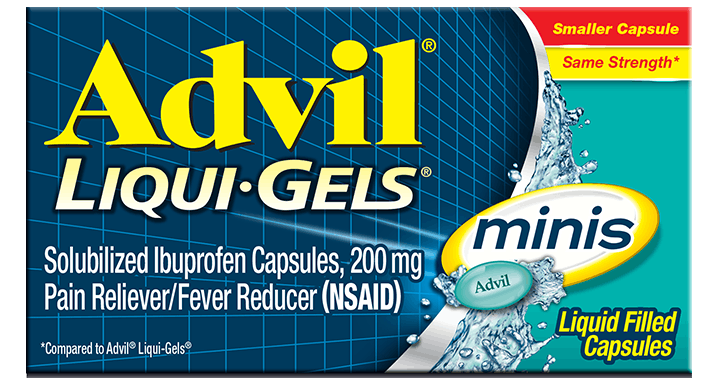
Advil Liqui-Gels Minis
Fast, powerful pain relief for your tough pain in a 33% smaller size.
ANCHOR HERE
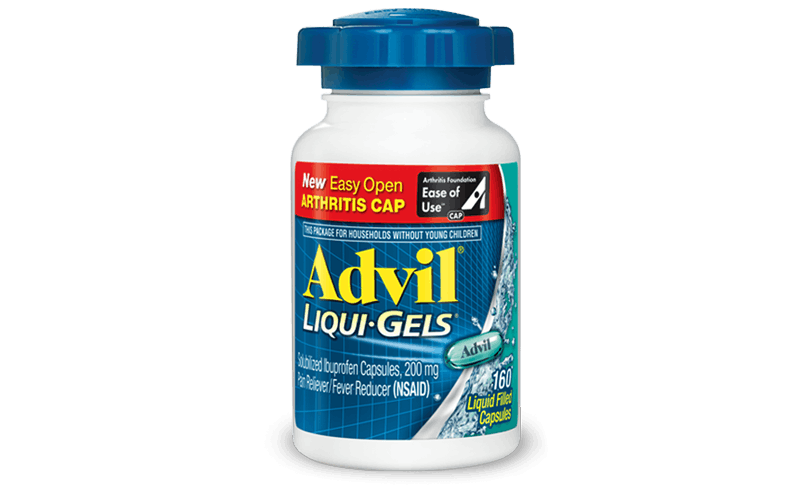
Advil Easy Open Arthritis Liqui Gels
Tough joint pain relief with a new cap that’s easier to open. †
ANCHOR HERE

Advil Migraine
Clinically proven to relieve migraine pain and related symptoms.
ANCHOR HERE

Advil Tablets
Advil targets pain at the source of inflammation for fast, powerful relief.
ANCHOR HERE
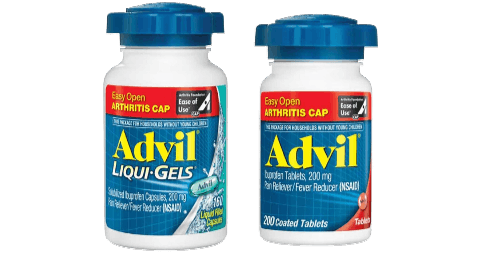
Advil Easy Open Arthritis Cap
Tough joint pain relief with a new cap that’s easier to open. †
ANCHOR HERE
Compare Advil Products

Count 300
Form Tablets
Key feature Easy to swallow
Ingredient Ibuprofen
Easy to swallow ✓
Fast-acting ✓
Duration Up to 6h
Dosage 1 tablet every 4 - 6 hours. If symptoms persist, 2 may be used. Do not exceed 6 tablets in 24h unless directed by a doctor. Under 12 y/o: Ask a doctor.

Count 200
Form Capsules
Key feature Small and easy to swallow
Ingredient Liquid Ibuprofen
Easy to swallow ✓
Fast-acting ✓
Duration Up to 6h
Dosage 1 capsule every 4 - 6 hours. If symptoms persist, 2 may be used. Do not exceed 6 capsules in 24h unless directed by a doctor. Under 12 y/o: Ask a doctor.

Count 160
Form Capsules
Key feature Fast-acting
Ingredient Liquid Ibuprofen
Easy to swallow ✓
Fast-acting ✓
Duration Up to 6h
Dosage 1 capsule every 4 - 6 hours. If symptoms persist, 2 may be used. Do not exceed 6 capsules in 24h unless directed by a doctor. Under 12 y/o: Ask a doctor.
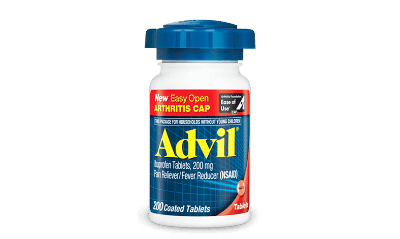
Count 200
Form Tablets
Key feature Easy open cap
Ingredient Ibuprofen
Fast-acting ✓
Duration Up to 6h
Dosage 1 tablet every 4 - 6 hours. If symptoms persist, 2 may be used. Do not exceed 6 tablets in 24h unless directed by a doctor. Under 12 y/o: Ask a doctor.
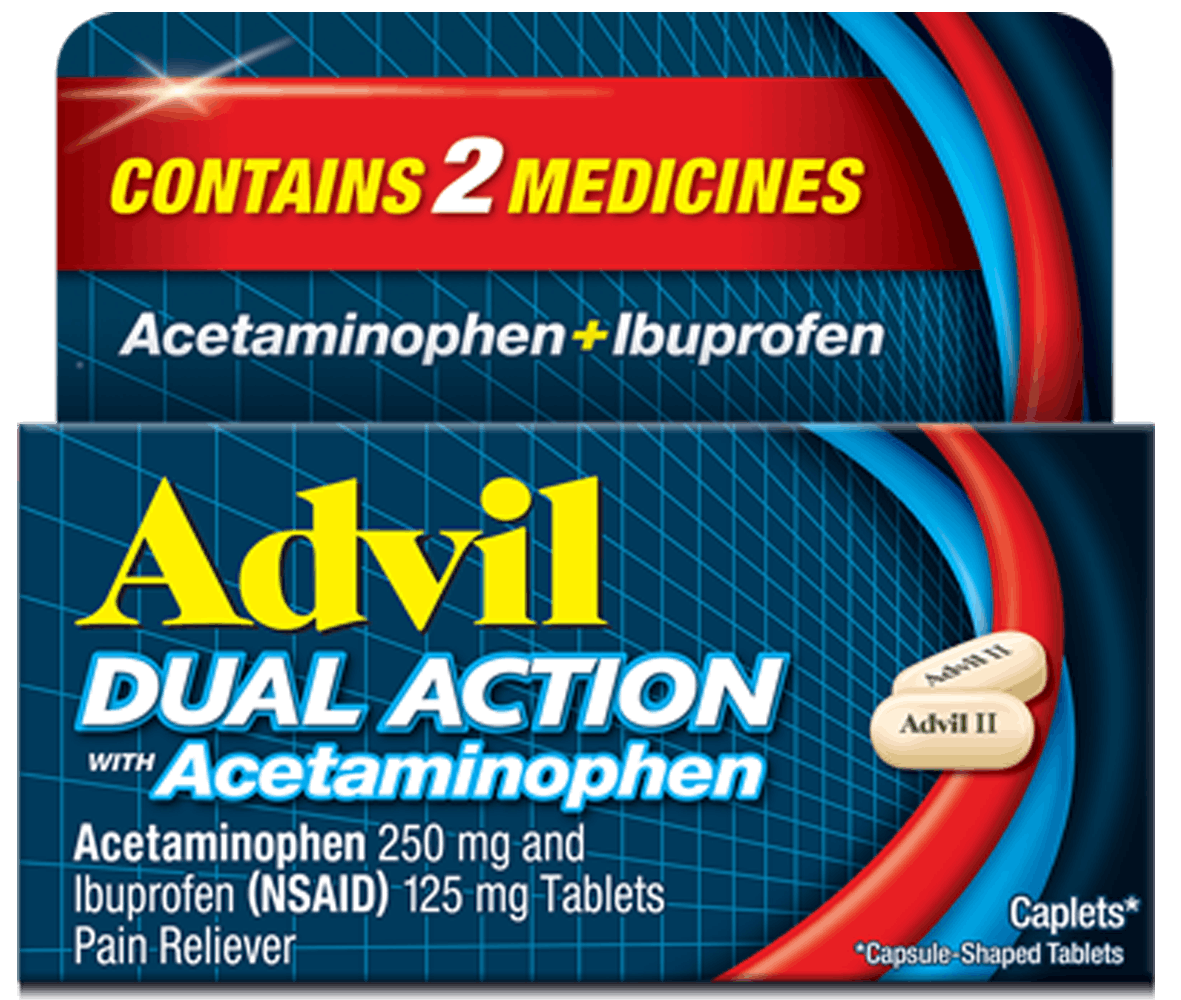
Count 144ct
Form Caplet
Key feature Target Back Pain
Ingredient Ibuprofen + Acetaminophen
Fast-acting ✓
Duration Up to 8h
Dosage 2 caplets every 8 hours. Do not exceed 6 caplets in 24h unless directed by a doctor. Under 12 y/o: Ask a doctor.
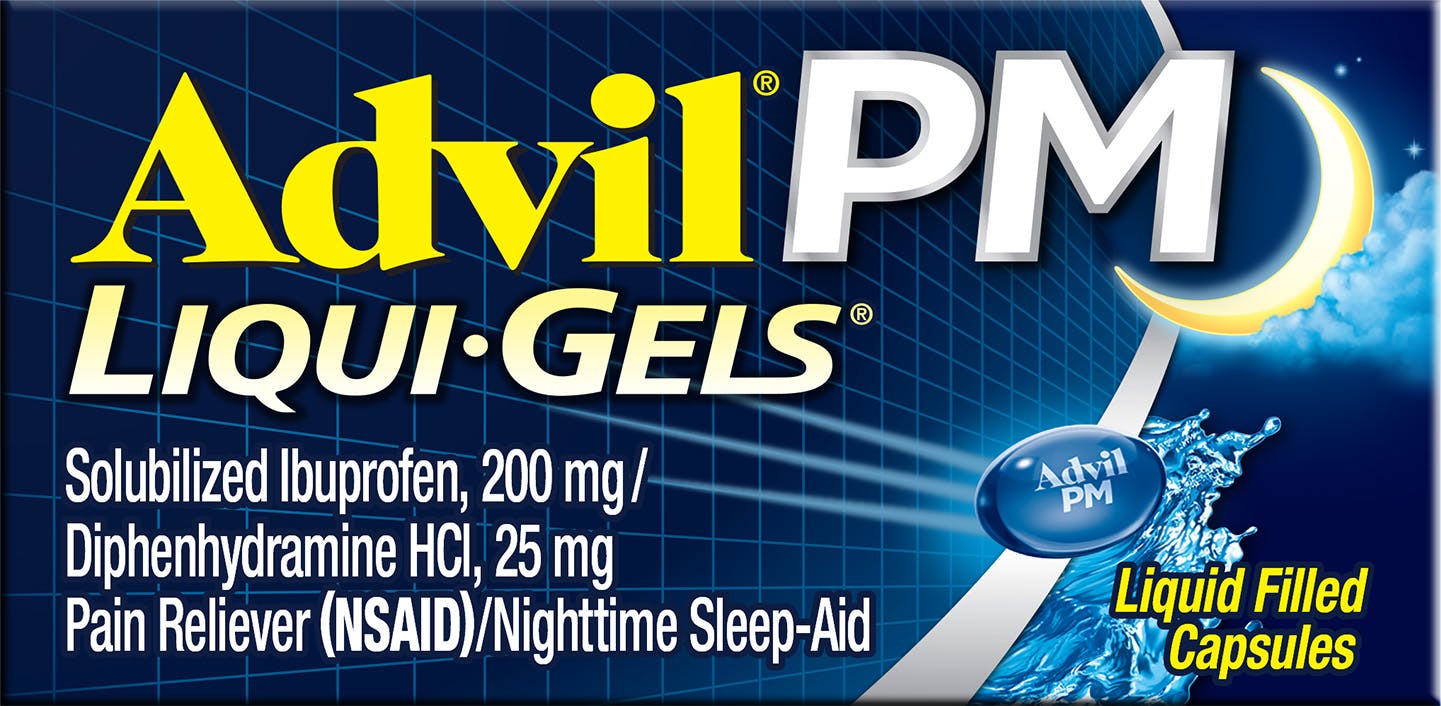
Count 80
Form Capsules
Key featurePain relief & 8 hours of sleep
Ingredient Solubilized Ibuprofen / Diphenhydramine
Easy to swallow ✓
Fast-acting ✓
Durationprovides pain relief and up to 8 hours of sleep
Dosage Take 2 capsules at bedtime. Do not take more than 2 capsules in 24h.

Count 160
Form Capsules
Key feature Fast-acting
Ingredient Liquid Ibuprofen
Easy to swallow ✓
Fast-acting ✓
Duration Up to 6h
Dosage 1 capsule every 4 - 6 hours. If symptoms persist, 2 may be used. Do not exceed 6 capsules in 24h unless directed by a doctor. Under 12 y/o: Ask a doctor.

Count 144ct
Form Caplet
Key feature Targets Back Pain
Ingredient Ibuprofen + Acetaminophen
Fast-acting ✓
Duration Up to 8h
Dosage 2 caplets every 8 hours. Do not exceed 6 caplets in 24h unless directed by a doctor. Under 12 y/o: Ask a doctor.
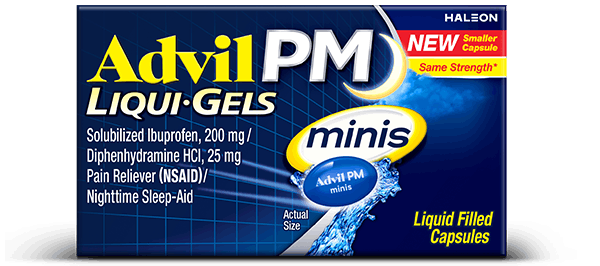
Count 80
Form Capsules
Key feature Pain relief & 8 hours of sleep
Ingredient Solubilized Ibuprofen / Diphenhydramine
Easy to swallow ✓
Fast-acting ✓
Duration provides pain relief and up to 8 hours of sleep
Dosage Take 2 capsules at bedtime. Do not take more than 2 capsules in 24h.

Count 200
Form Capsules
Key feature Small and easy to swallow
Ingredient Liquid Ibuprofen
Easy to swallow ✓
Fast-acting ✓
Duration Up to 6h
Dosage 1 capsule every 4 - 6 hours. If symptoms persist, 2 may be used. Do not exceed 6 capsules in 24h unless directed by a doctor. Under 12 y/o: Ask a doctor.

Count 200
Form Tablets
Key feature Easy open cap
Ingredient Ibuprofen
Fast-acting ✓
Duration Up to 6h
Dosage 1 tablet every 4 - 6 hours. If symptoms persist, 2 may be used. Do not exceed 6 tablets in 24h unless directed by a doctor. Under 12 y/o: Ask a doctor.

Count 144ct
Form Caplet
Key feature Target Back Pain
Ingredient Ibuprofen + Acetaminophen
Fast-acting ✓
Duration Up to 8h
Dosage 2 caplets every 8 hours. Do not exceed 6 caplets in 24h unless directed by a doctor. Under 12 y/o: Ask a doctor.

Count 80
Form Capsules
Key featurePain relief & 8 hours of sleep
Ingredient Solubilized Ibuprofen / Diphenhydramine
Easy to swallow ✓
Fast-acting ✓
Durationprovides pain relief and up to 8 hours of sleep
Dosage Take 2 capsules at bedtime. Do not take more than 2 capsules in 24h.

Count 160
Form Capsules
Key feature Fast-acting
Ingredient Liquid Ibuprofen
Easy to swallow ✓
Fast-acting ✓
Duration Up to 6h
Dosage 1 capsule every 4 - 6 hours. If symptoms persist, 2 may be used. Do not exceed 6 capsules in 24h unless directed by a doctor. Under 12 y/o: Ask a doctor.

Count 300
Form Tablets
Key feature Easy to swallow
Ingredient Ibuprofen
Easy to swallow ✓
Fast-acting ✓
Duration Up to 6h
Dosage 1 tablet every 4 - 6 hours. If symptoms persist, 2 may be used. Do not exceed 6 tablets in 24h unless directed by a doctor. Under 12 y/o: Ask a doctor.

Count 144ct
Form Caplet
Key feature Targets Back Pain
Ingredient Ibuprofen + Acetaminophen
Fast-acting ✓
Duration Up to 8h
Dosage 2 caplets every 8 hours. Do not exceed 6 caplets in 24h unless directed by a doctor. Under 12 y/o: Ask a doctor.

Count 80
Form Capsules
Key feature Pain relief & 8 hours of sleep
Ingredient Solubilized Ibuprofen / Diphenhydramine
Easy to swallow ✓
Fast-acting ✓
Duration provides pain relief and up to 8 hours of sleep
Dosage Take 2 capsules at bedtime. Do not take more than 2 capsules in 24h.
